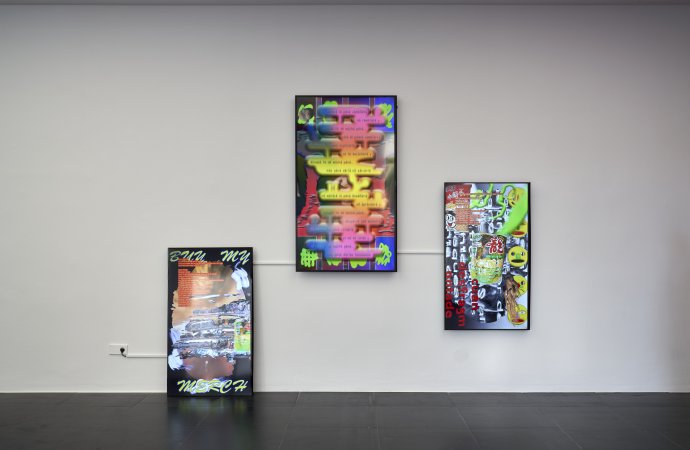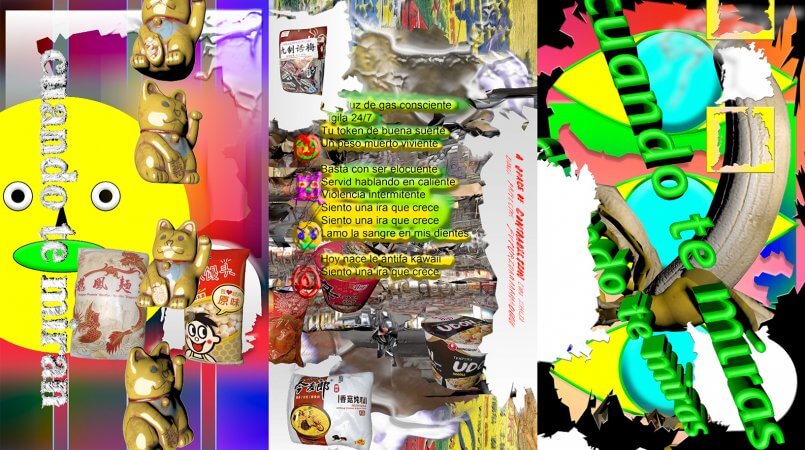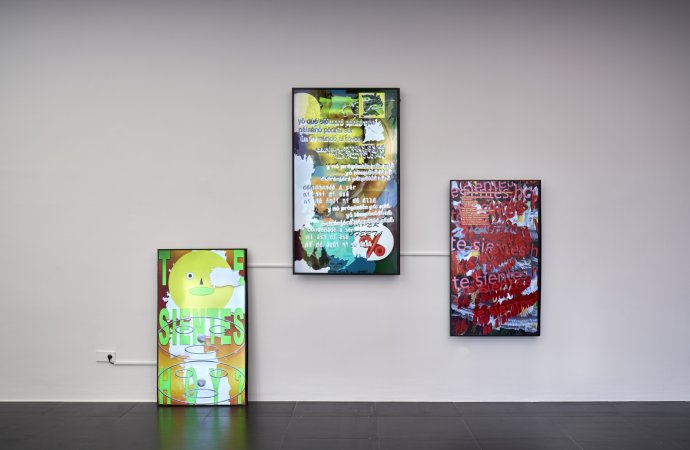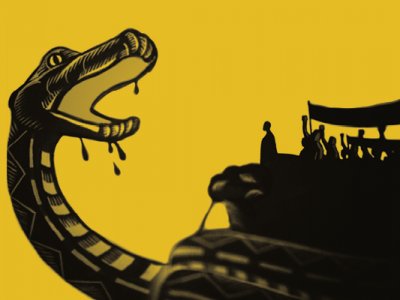Chenta Tsai aka Putochinomaricón
áfóñg, 2022
Mixed digital media
Courtesy the artist
Delving into the subject of representation through the medium of an audiovisual mixtape, the work is structured under 8 themes:
íntró (éstádó cónstánté dé críngé)
síndrómé dél ímpóstór / nó mérécé lá péná / párá nó dár péná
ántifáz káwáíí / nárrátívá
ámóré (ábró híló – té ódíó) / chínító dé ámól
pérdón pór éxístír
mámá hé mátádó á ún sím
pólly dé hácéndádó / lá gállíná cápónátá
dé dóndé víénés / ní dé áqúí ní dé állá / óútró
Autofiction: a musical tale for a bazaar in the year 3000
Chenta Tsai is Putochinomaricón, a well-known musician, producer and multimedia artist who uses pop as a tool for resistance and political questioning. Her proposal is articulated around her life experience as a person of colour from the Taiwanese diaspora, a sexual and gender dissident, who has grown up in Spain. A distilled experience, deconstructed from queer theory, and fictionalised in her alter ego in a state of constant evolution and revolution.
The mere fact that she uses her voice and lyrics to invade a genre that usually rejects the critical and irreverent, such as pop, is already a statement of her creative approach where everything contaminates everything and forms a whole: ideology, image and sound. Putochinomaricón fills the stages of the main international festivals with a particular programme that brings together costumbrismo (in its original sense of a literary or pictorial interpretation of local everyday life) – elevated to the category of the hyper-relevant, formed by decontextualised objects, almost fetishes – protest song, globalised club culture. Internet culture, intelligent provocation and ugliness or kitsch have been an intrinsic part of her work since her first LP Corazón De Cerdo Con Ginseng Al Vapor (Steamed Pork Heart with Ginseng) in 2018, Miseria Humana (Human Misery) in 2019 or JÁJÁ ÉQÚÍSDÉ (Dystopía Aburrida) in 2022.
Racism, homophobia, misogyny, clichés, prejudices: her denunciations never seek to victimise, whether herself or others, but represent rather self-empowerment. Putochinomaricón turns the insult into a defence of difference through humour and poetry. The artist, who is also a writer (as well as architect and violinist), has authored the essay Arroz Tres Delicias – Sexo, Raza y Género (2019) and written a column for the Spanish newspaper El País. She investigates the capacity that language has, the terms with which we name ourselves and are named to control our identities. In this, she emphasises the need to coin new terms or contribute to their use, in order to determine and liberate their interpretation oneself.
Through the presence and performance of her physical and digital body, her artistic practice takes as its theme a self that questions labels, proposing new spaces for activism, for the expression of multiple identities, for the hedonism of the non-hegemonic and for friendship and care. The audiovisual piece áfóñg, in the words of the artist, ‘explores this tension, the double-edged complexities of representation and visibility experienced by the artist as a dissident. It questions the possibility of building platforms for East and Southeast Asian gender and sexual dissidents, spaces that fully embrace us without having to fragment, simplify or hide parts of our identities to fit into hegemonic spaces. Utopian futures where our bodies are far from tokenisation, instrumentalisation and fetishisation, building speculative spaces of communal healing through pop as a tool of resistance and political critique.’ […] ‘Who are we, as non-hegemonic artists, Occupying a space because of our art/ Occupying a space for aesthetics without ethics?/Occupying a space as a token?/Occupying a space to meet a diversity quota?/Occupying a space out of white guilt?/Occupying a space to enable an event to whitewash fascism?/ Occupying a space to enable a brand to pinkwash?/Occupying a space to repair that space’s long history of institutional and structural racism?’
Chenta Tsai aka Putochinomaricón (*1990, Taipei, TW), is an artist, architect, activist, musician, producer, and live performer based in Madrid (ES). Pop as a tool of political resistance is central in her newest work she produced for the Frankfurter Kunstverein as well in her first LP Corazón De Cerdo Con Ginseng Al Vapor in 2018, Miseria Humana in 2019 or JÁJÁ ÉQÚÍSDÉ (Distopía Aburrida) in 2022. Chenta Tsai is also the author of Arroz Tres Delicias – Sexo, Raza y Género and former columnist of the Spanish newspaper El País. She has collaborated with artists such as Pussy Riot, Dorian Electra, GFOTY and Tami and has performed physically and virtually in festivals and clubs such as Primavera Sound, Barcelona (ES), Sónar, Barcelona (ES), Heav3n, Los Angeles (US) or Final, Taipei (TW). She has participated in the Spanish Pavilion of the 58. Biennale di Venezia (IT) and has exhibited in the Museo Nacional Centro de Arte Reina Sofía, Madrid (ES).








